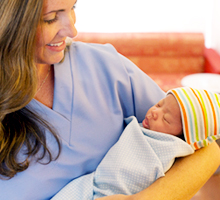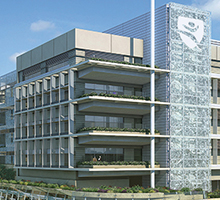Postoperative Lifestyle for Bariatric Surgery Patients
Patients, with the support of their families, must commit to a series of follow-up visits and lifestyle changes after bariatric surgery.
Follow-up Visits
Patients and families living within 100 miles of Lucile Packard Children's Hospital Stanford must attend follow-up visits according to the timetable below:
Time after bariatric surgery discharge:
|
|
 Megan Acaccia, after her bariatric surgery Megan Acaccia, after her bariatric surgery |
These visits may include clinical consultations and laboratory and diagnostic tests. These are necessary to:
- Address any problems as quickly as possible
- Ensure the body is healing from the surgery
- Ensure the patient is getting the necessary nutrition and physical exercise
Periodic visits will be scheduled until the patient turns 18-20. After this age, patients are given the option to have their care transferred to the adult Stanford Hospital & Clinics Bariatric Surgery Program.
Lifestyle Changes
Patients are highly encouraged to make the following long-term lifestyle changes after bariatric surgery:
- Take vitamins and mineral supplements daily
- Eat a very low-calorie, low-carbohydrate diet
- Exercise on a regular basis
- Take prescribed medications for six months
- Avoid pregnancy until at least two years after the bariatric surgery
Emotional Support
The bariatric surgery team provides emotional support to patients and families through continuous in-person and telephone follow-up. Pre- and postsurgical patients and families are required to attend at least four support groups per year. Everyone is encouraged to attend monthly. Attendees can:
- Get their questions answered
- Voice their concerns
- Receive guidance and encouragement from other patients and families





























